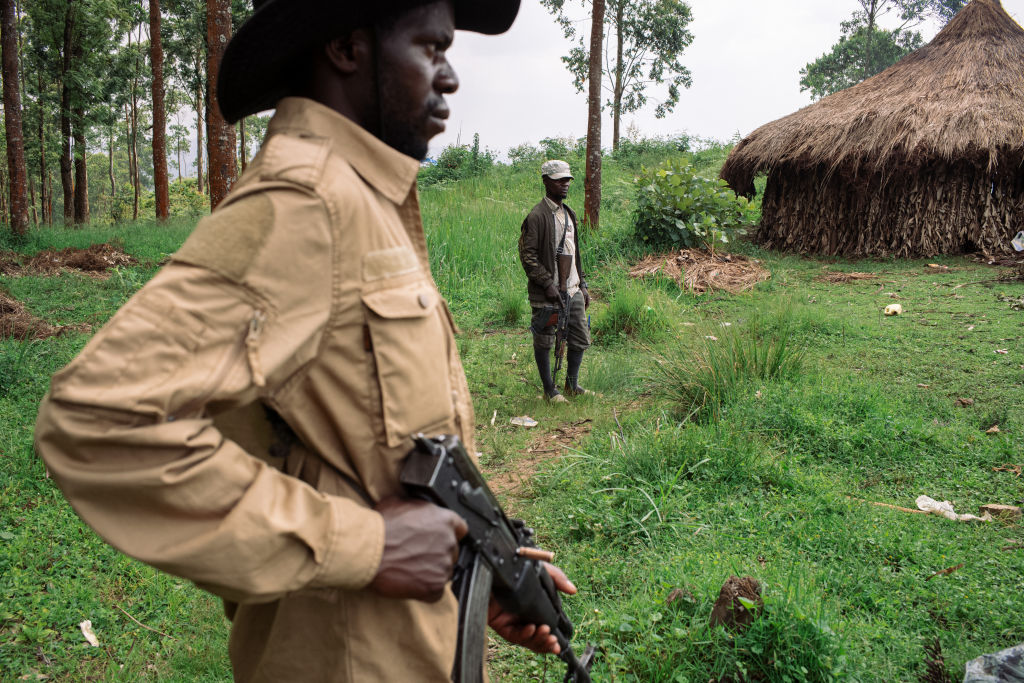Nearly 40 people died in the early hours of July 27 when terrorists from the Islamic State-Central African Province attacked a Catholic church in Komanda in the Ituri province of the Democratic Republic of the Congo. The attack was the latest episode of brutal violence by the group also known as the Allied Democratic Forces.
As the government of the DRC attempts to make peace with M23 rebels in the eastern part of the country, Islamic State-Central African Province (IS-CAP) has increased its attacks against civilian targets across the region. As in Komanda, those attacks often target unarmed civilians gathered for worship services. In Komanda, extremists attacked worshipers with guns and machetes, killing 38 and injuring 15.
“[IS-CAP] is taking more or less the advantage of the Congolese Army’s and international diplomacy’s focus on the M23 further south without attracting too much attention,” Onesphore Sematumba, the Congo analyst at the International Crisis Group, told The Associated Press.
According to an analysis by the Armed Conflict Location and Event Dataset, IS-CAP is active largely in the DRC’s northeastern Ituri province and the northern parts of North Kivu province, both of which border Uganda, where the group originated in the 1990s. IS-CAP and M23 overlap in the territory between the North Kivu communities of Lubero and Butembo.
While M23 has political goals and attacks both civilian and military targets, IS-CAP’s goal is to establish an Islamic state governed under Sharia law, known as a caliphate.
Operation Shujaa, a 2021 joint operation by the Congolese and Ugandan militaries, drove IS-CAP from its havens and splintered it into multiple cells spread across Ituri and North Kivu provinces.
Terrorists from those cells bomb churches, markets and schools. They also raid villages, kidnap civilians and loot farms for cash crops they can sell. As the number of attacks have increased in recent months, so have the number of victims.
In response to IS-CAP’s rising violence, Uganda deployed an additional 1,000 Soldiers onto DRC territory along the Ugandan border in Ituri and North Kivu in February. That brought the total Ugandan troop presence in the DRC to 5,000.
As they expand across Ituri and North Kivu, IS-CAP extremists burn entire villages. They have recently begun demanding money from the communities they attack. That money eventually filters back to Islamic State’s chief African operations center in Somalia, where the Islamic State faces increasing pressure from government forces.
In the meantime, IS-CAP continues to recruit new members from among young men and traders suffering from the economic insecurity across the eastern DRC. In many cases, new recruits are lured by promises of quick money or better opportunities, according to analysts.
Beyond extorting civilians for money, IS-CAP has turned to a variety of illegal operations for funds. Members traffic timber, cocoa, weapons and minerals across the region, according to a report by the French Institute of International Relations.
Experts say that IS-CAP has taken advantage of the Congolese military’s focus on M23 to expand its operations.
“The potential for [IS-CAP] expansion amid the broader DRC crisis continues to pose a serious threat over both the short and long term,” the Soufan Center analysts wrote.

